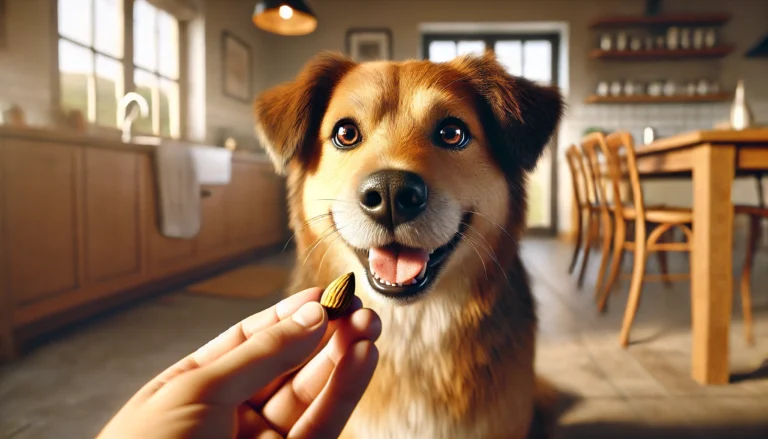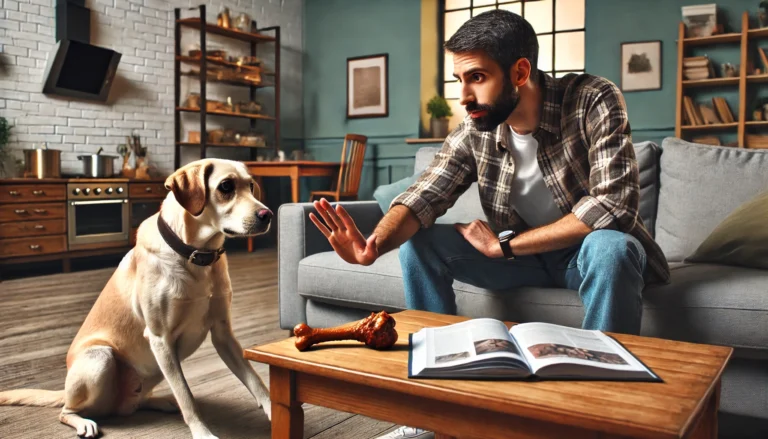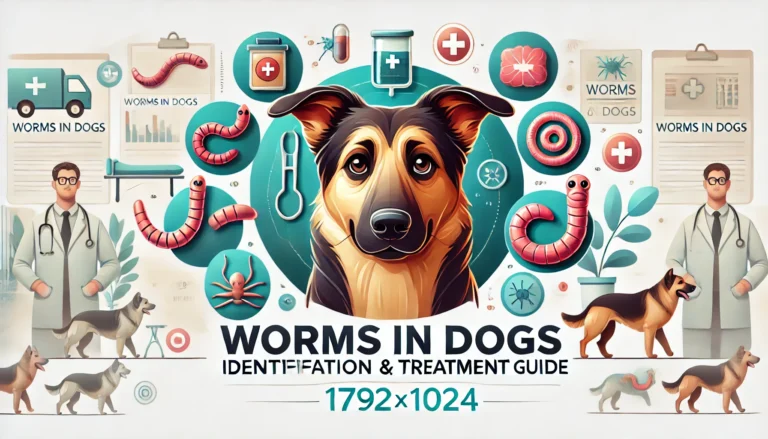Why Is My Dog Peeing a Lot?
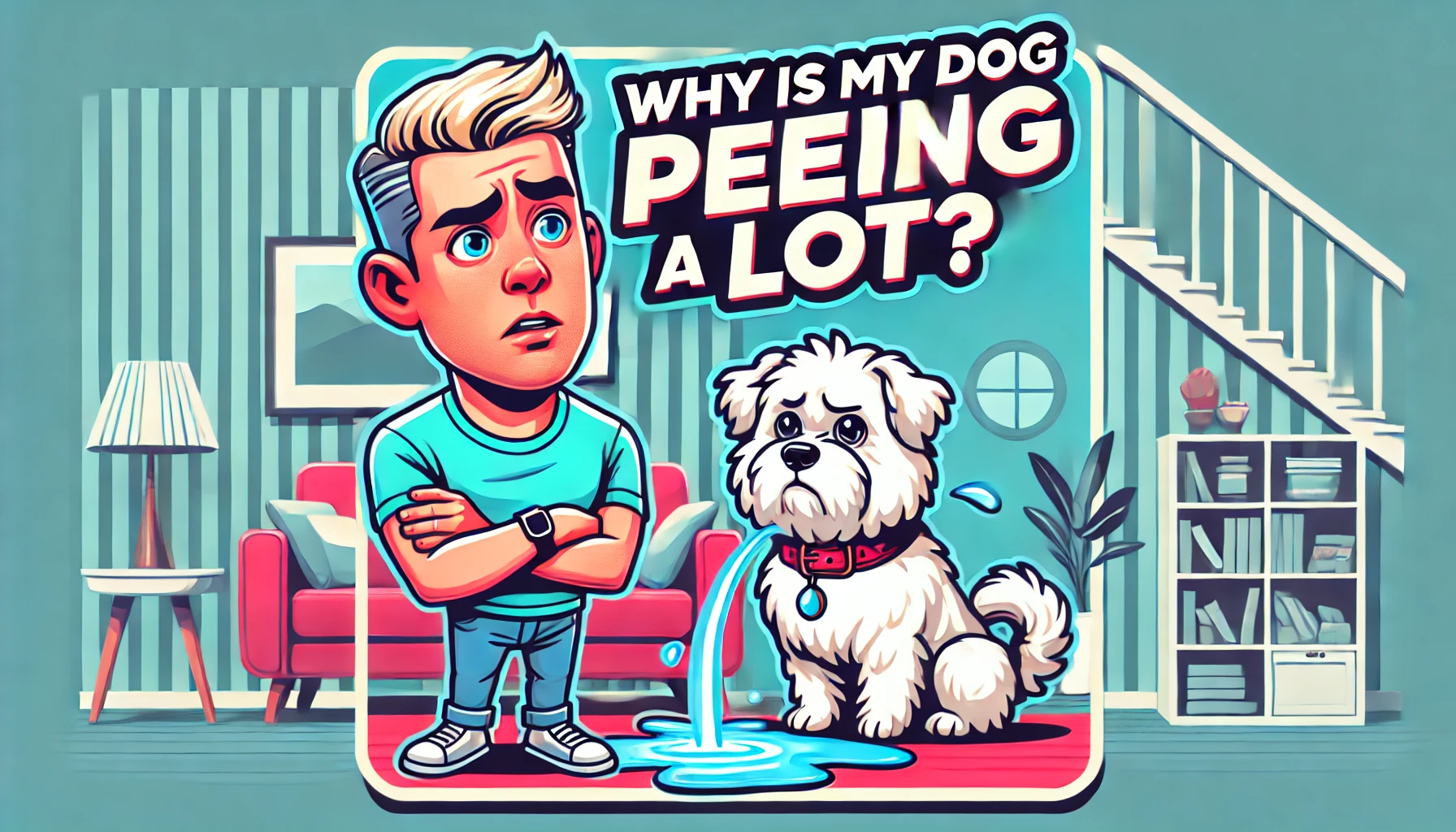
Dog Peeing a Lot? If you’ve noticed and think Why Is My Dog Peeing a Lot and more frequently than usual, it could be due to several different factors. While it might be a sign of something harmless, excessive urination in dogs can sometimes indicate an underlying health issue. Understanding the causes behind your dog’s increased urination is essential to finding the right solution. This article explores why your dog might be peeing a lot and what steps you can take to address it.
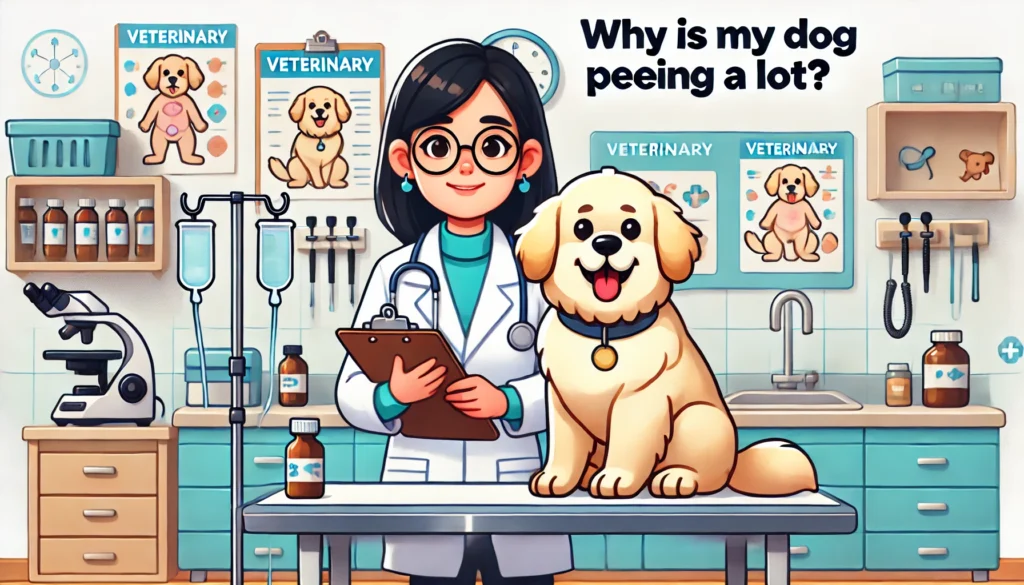
Understanding Normal Urination in Dogs
Before diving into the potential reasons Why Is My Dog Peeing a Lot? it’s important to understand what normal urination looks like for dogs. On average, adult dogs urinate three to five times a day. Puppies, however, urinate more frequently—often every one to two hours due to their smaller bladders and underdeveloped control.
How often should a puppy pee? Puppies may pee 5 to 10 times a day, and it’s common for them to urinate frequently, in small amounts. If your puppy is peeing a lot, that’s typically normal behavior as long as the frequency isn’t excessive for their age.
Common Causes of Increased Urination in Dogs
There are numerous reasons why your dog might suddenly be peeing a lot. While some causes are medical, others are related to behavioral or environmental factors. Here are the most common causes:
1. Urinary Tract Infection (UTI)
Urinary tract infections are one of the most common reasons for excessive urination in dogs. If you think Why Is My Dog Peeing a Lot? and even in small amounts and appears uncomfortable, they might have a UTI. Male dogs peeing a lot suddenly and female dogs peeing a lot suddenly are both signs of a possible UTI. Other symptoms include straining to urinate, blood in the urine, and licking the genital area.
What to do: See your vet if you suspect a UTI. It can usually be treated with antibiotics, but left untreated, a UTI can lead to more serious issues like kidney infections.
2. Diabetes
Diabetes is another common cause of frequent urination in dogs. Dog Peeing a Lot? when you stuck in this kind of situation you remember dog with diabetes are unable to regulate their blood sugar levels properly, which leads to excessive thirst (polydipsia) and increased urination (polyuria). If your dog is drinking a lot of water and urinating frequently, diabetes could be the reason.
What to do :when you thinking Why Is My Dog Peeing a Lot? Treatment for diabetes in dogs typically involves insulin injections and a special diet.
3. Kidney Disease
Kidney disease affects your dog’s ability to concentrate urine, causing them to urinate more frequently and in larger amounts. Dogs with kidney disease often show other symptoms such as weight loss, vomiting, and lethargy.
What to do: Kidney disease requires a vet’s diagnosis and treatment, which may involve medication, dietary changes, and ongoing management.
4. Cushing’s Disease
Cushing’s disease occurs when a dog’s body produces too much cortisol. This hormone imbalance can cause increased thirst and urination. Dogs with Cushing’s disease may also have a pot-bellied appearance and show signs of muscle weakness.
What to do: Consult your vet for diagnostic tests. Treatment options for Cushing’s disease include medication or surgery, depending on the severity of the condition.
5. Behavioral Issues and Anxiety
Sometimes, frequent urination is caused by behavioral factors rather than medical issues. Dogs experiencing anxiety, stress, or excitement may urinate more frequently. Puppies that pee constantly inside the house may be marking territory or expressing anxiety. Puppy frequent urination can also happen when they are excited, which is commonly seen in younger dogs.
What to do: Identify the triggers causing the behavior and address them with training or behavioral therapy. In some cases, consulting a professional dog trainer can be helpful.
6. Increased Water Intake
If your dog is drinking a lot of water, they will naturally urinate more often. Hot weather, increased exercise, or changes in diet can all lead to increased thirst. Senior dogs drinking and peeing a lot can be due to age-related changes, but increased water intake should always be monitored to rule out medical conditions like diabetes or kidney issues.
What to do: Monitor your dog’s water intake. If your dog is drinking excessively and urinating frequently without any obvious reason, consult your vet.
7. Medications
Certain medications, such as diuretics, can increase your dog’s urine output. These medications are commonly prescribed for heart issues or high blood pressure and work by removing excess fluid from the body.
What to do: If your dog is on medication and you notice they are peeing a lot, talk to your vet to see if adjustments can be made.
8. Bladder Stones
Bladder stones can cause your dog to urinate frequently and may also cause discomfort or pain when urinating. Symptoms of bladder stones include straining to urinate, urinating frequently in small amounts, and blood in the urine.
What to do: A vet can diagnose bladder stones with an X-ray or ultrasound. Depending on the size of the stones, treatment may involve medication, diet changes, or surgery.
9. Age-Related Changes
Older dogs often experience increased urination due to weakening muscles or age-related conditions like incontinence. Senior dogs urinating frequently may also be related to diseases such as diabetes or kidney disease. Senior dogs peeing a lot can also result from reduced bladder control.
What to do: Provide more frequent bathroom breaks for your senior dog and consult your vet to discuss any age-related health concerns.
10. Heat Cycles in Female Dogs
If your female dog isn’t spayed, she may experience increased urination during her heat cycle. This is a natural part of her reproductive cycle and should subside once the cycle ends.
What to do: If the increased urination is related to her heat cycle, it’s generally not a cause for concern. Spaying your dog will prevent heat cycles and the accompanying symptoms.
Frequent Dog Peeing a Lot :Is It Normal?
Puppies naturally pee more often than adult dogs because their bladders are small, and they haven’t fully developed bladder control. If your puppy is peeing a lot and it’s in small amounts, this is often normal for young puppies. However, excessive peeing in puppies or puppies peeing every 5 minutes could indicate an issue like a UTI or other health problems.
How many times should a puppy pee in a day? A puppy typically pees 5 to 10 times per day, but the frequency may vary depending on age, breed, and water intake.
When Should You Be Concerned?
While occasional increased urination may not be a cause for concern, persistent or sudden changes should be taken seriously. Here are some signs that you should consult your vet:
- Frequent urination without any obvious cause.
- Peeing small amounts frequently or straining to urinate.
- Blood in the urine or unusual color.
- Increased thirst alongside frequent urination.
- Accidents indoors from a previously house-trained dog
do you know
Increased vocalization can signal discomfort. If your dog is whining or acting anxious, they might be trying to tell you that they are feeling the cold and it’s too Cold for Your Dog.
Prevention and Management of Excessive Urination
While not all causes of frequent urination can be prevented, there are steps you can take to minimize risks:
1. Regular Vet Checkups
Routine vet checkups visiters are essential for catching health problems early. Regular urine tests can help identify issues like diabetes or kidney disease before they become severe.
2. Balanced Diet
Providing your dog with a healthy, balanced diet can support their overall health, including their urinary tract health.
3. Proper Hydration
Ensure your dog has access to fresh water throughout the day, but monitor for excessive drinking, which could indicate an underlying issue.
4. Frequent Bathroom Breaks
Especially for puppies and senior dogs, ensure that your dog has plenty of opportunities to relieve themselves to avoid accidents or strain on their bladder.
Conclusion
If your Dog Peeing a Lot it’s essential to understand whether the cause is medical or behavioral. While some causes, such as excessive water intake or excitement, are relatively harmless, others, such as diabetes or kidney disease, require prompt medical attention. Frequent urination in dogs can indicate various conditions, so monitoring your dog’s behavior and seeking veterinary advice when necessary is crucial. Whether you have a puppy peeing every 5 minutes or an older dog experiencing sudden urinary issues, early detection and proper care can ensure your pet stays happy and healthy.
Should I be worried if my dog is peeing a lot?
Yes, frequent urination can indicate issues such as a urinary tract infection, diabetes, or kidney disease. It’s best to consult your vet if you notice any unusual changes in your dog’s peeing habits.
How many times is too much for a dog to pee?
While there’s no universal number, peeing more than usual, particularly if it’s accompanied by signs of distress or urgency, could warrant a vet visit.
Why does my dog pee every 15 minutes?
This could be a sign of a lower urinary tract issue or a behavioral trigger. Consulting a vet can help determine the cause.
Why does my puppy pee every 20 minutes?
Puppies have smaller bladders and may need to pee more frequently, especially when they’re young. However, if they’re peeing excessively, it might be due to a health issue.
Do dogs in heat pee more?
Yes, it’s common for dogs in heat to urinate more frequently. They do this to spread their scent and signal their reproductive status to male dogs.
How do you know if a dog has a bladder infection?
Symptoms include frequent urination, straining to pee, bloody or cloudy urine, and possibly fever or lethargy. A vet can diagnose this through urine tests
Can a dog UTI clear on its own?
Some minor urinary tract infections might resolve without intervention, but it’s risky to leave a UTI untreated as it can lead to more serious conditions. Always consult with a vet.
How can I treat my dog’s urinary tract infection at home?
Home treatment should only be done after consulting with a vet, but increasing water intake, offering urinary support supplements, and ensuring good hygiene can help alleviate symptoms



